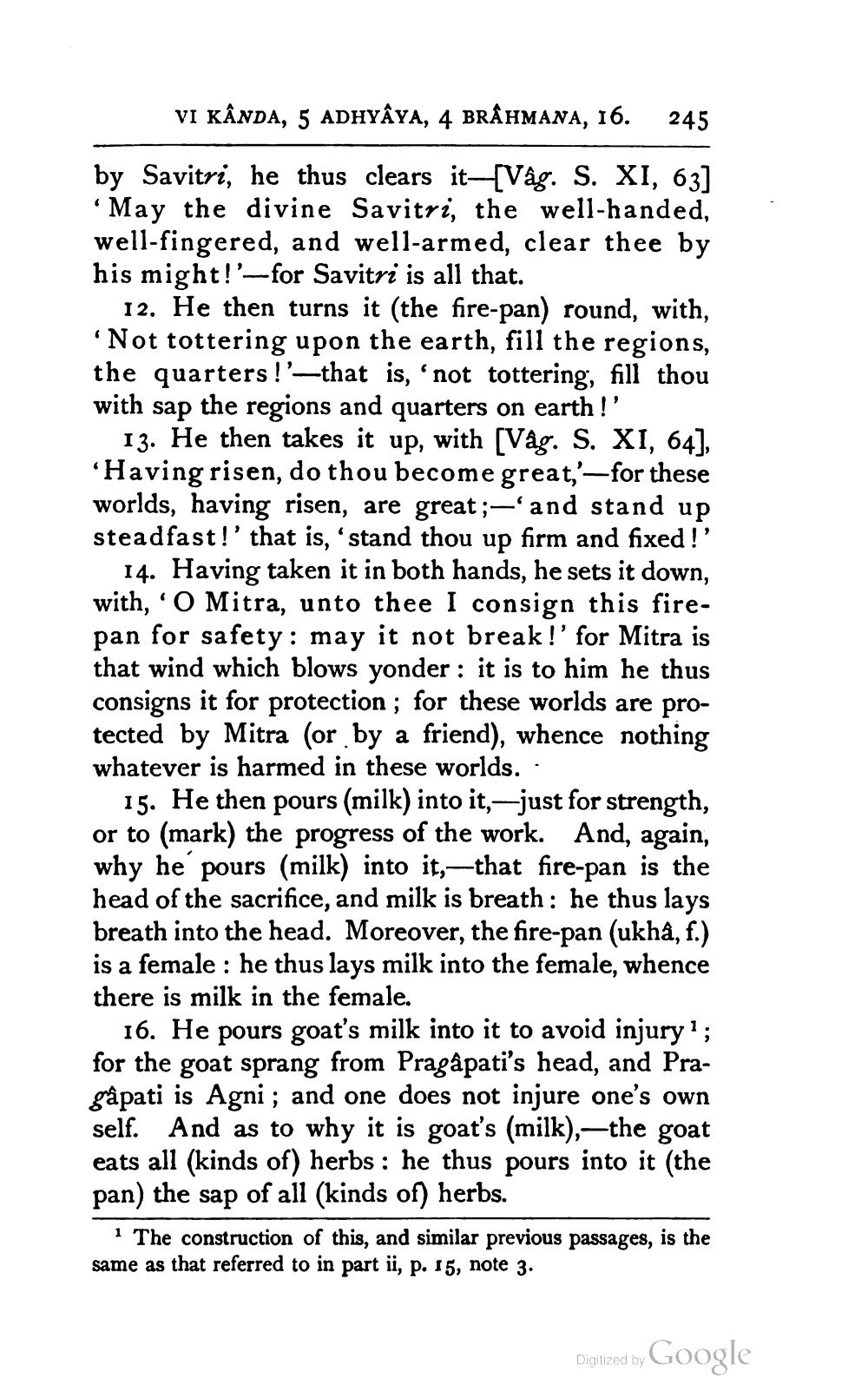________________
VI KÂNDA, 5 ADHYAYA, 4 BRÂHMANA, 16.
245
by Savitri, he thus clears it-Vag. S. XI, 637
May the divine Savitri, the well-handed, well-fingered, and well-armed, clear thee by his might!'--for Savitri is all that.
12. He then turns it (the fire-pan) round, with, 'Not tottering upon the earth, fill the regions, the quarters !'--that is, 'not tottering, fill thou with sap the regions and quarters on earth!
13. He then takes it up, with [Vâg. S. XI, 64), Having risen, do thou become great,'—for these worlds, having risen, are great;—'and stand up steadfast!' that is, 'stand thou up firm and fixed!'
14. Having taken it in both hands, he sets it down, with, 'O Mitra, unto thee I consign this firepan for safety: may it not break!' for Mitra is that wind which blows yonder : it is to him he thus consigns it for protection ; for these worlds are protected by Mitra (or by a friend), whence nothing whatever is harmed in these worlds. .
15. He then pours (milk) into it, - just for strength, or to (mark) the progress of the work. And, again, why he pours (milk) into it,—that fire-pan is the head of the sacrifice, and milk is breath: he thus lays breath into the head. Moreover, the fire-pan (ukhâ, f.) is a female : he thus lays milk into the female, whence there is milk in the female.
16. He pours goat's milk into it to avoid injury; for the goat sprang from Pragàpati's head, and Pragåpati is Agni; and one does not injure one's own self. And as to why it is goat's (milk),—the goat eats all (kinds of) herbs : he thus pours into it (the pan) the sap of all (kinds of) herbs.
The construction of this, and similar previous passages, is the same as that referred to in part ii, p. 15, note 3.
Digitized by Google




